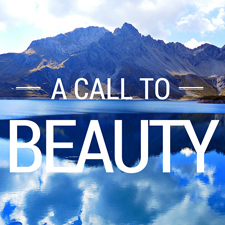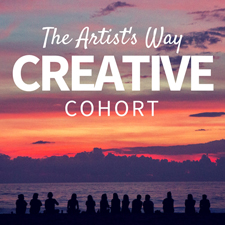Last week, when I shared limitations of “following the ease,” I left something out. I didn’t want to confuse the issue at the time, but it would be unfair to ignore why I personally don’t want to “follow the ease” and that’s mindset. Let me explain.
When it comes to intelligence, I’ve always believed that we have a certain allocation and that’s that. Luckily, I seemed to do pretty well with what I had. As a child, I was frequently praised for being smart and invited into the gifted program. By high school, I equated expending effort with having less intelligence. If something came easily to me, I felt validated and kept exploring it. If something was hard, I took it as a sign that course of action wasn’t for me.
I’ve realized recently, thanks to Stanford psychology professor and author Carol Dweck, PhD, that I had a fixed mindset (at least where intellect is concerned). In her book Mindset: The New Psychology of Success, Dweck explains: “In a fixed mindset, people believe their basic qualities, like their intelligence or talent, are simply fixed traits.” If this resonates with you, you can test your mindset at Dweck’s website.
The alternative to a fixed mindset is one of growth. “In a growth mindset,” Dweck outlines, “people believe that their most basic abilities can be developed through dedication and hard work—brains and talent are just the starting point.”
In recent years, having a fixed mindset caught up with me. And the assertion that I should follow the ease didn’t help.
When I moved my successful photography business—one that had been fairly easy to launch—from Virginia to California and things no longer came so easily, I wondered what had changed. Was the Universe telling me something? Was I on the wrong path? Was I manifesting challenges because my heart was no longer in it? Or was I not trying hard enough?
It’s that last question that gave me pause.
Remember, I equated effort with being less able. I’d grown accustomed to not applying myself. As embarrassing as I find this to admit, apparently it is fairly common.
According to Dweck, “Malcolm Gladwell, the author and New Yorker writer, has suggested that as a society we value natural, effortless accomplishment over achievement through effort. We endow our heroes with superhuman abilities that led them inevitably toward their greatness.”
Now, the way I see it, if I continue along my current path, I could live my entire life without reaching my full potential. That doesn’t sound like such a good idea to me.
The good news is, “mindsets are just beliefs. They’re powerful beliefs, but they’re just something in your mind, and you can change your mind.”
I may have been born with a fixed mindset—or my upbringing may have helped to evolve one, I don’t know—but it is my choice whether I want to stick with it or cultivate a growth mindset instead.
I’m going to have to go with change. In the growth mindset, struggles don’t define you. They are a step along the path and signify that you need to try harder and learn more.
Thus I can’t follow the ease. Doing so is too close to my natural inclination to stop trying at any sign of resistance. It’s time to internalize that I am not diminished by effort—that, in fact, success stems from effort—and that I must apply myself when something really matters.

As Nadja Salerno-Sonnenberg, a violinist and child prodigy who once struggled with fixed mindset, said, “This is something I know for a fact: You have to work hardest for the things you love most.” Ok, Nadja, let’s do this.
Who’s with me?

P.S. This is my second read through Carol Dweck’s book, Mindset. I’m learning a lot and it’s not all fixed mindsets.
Photo Credit: vfowler via Compfight cc
















